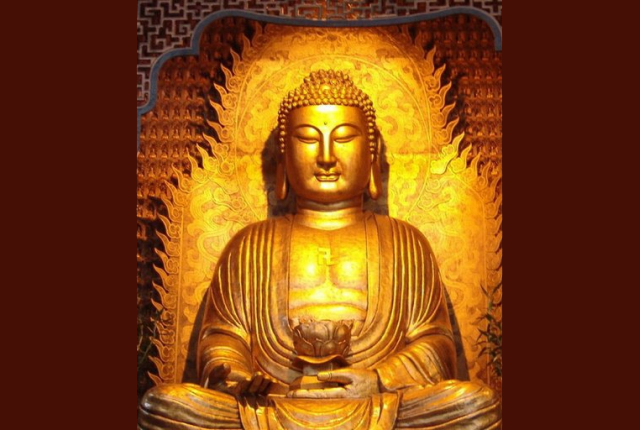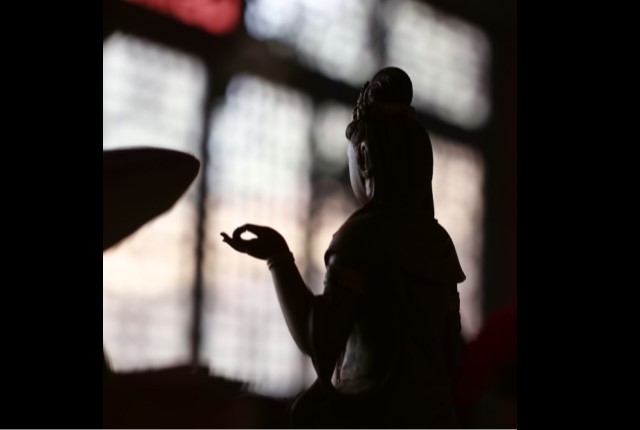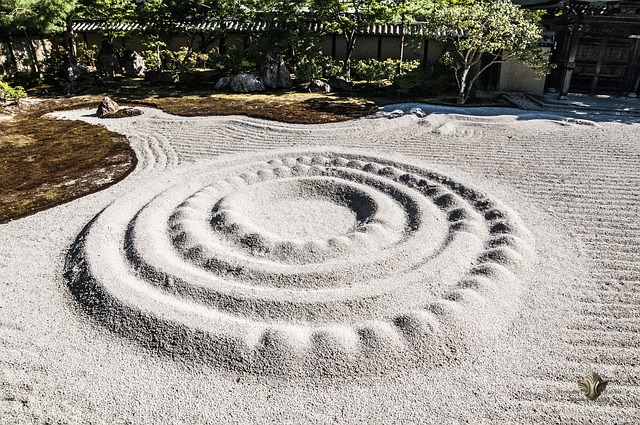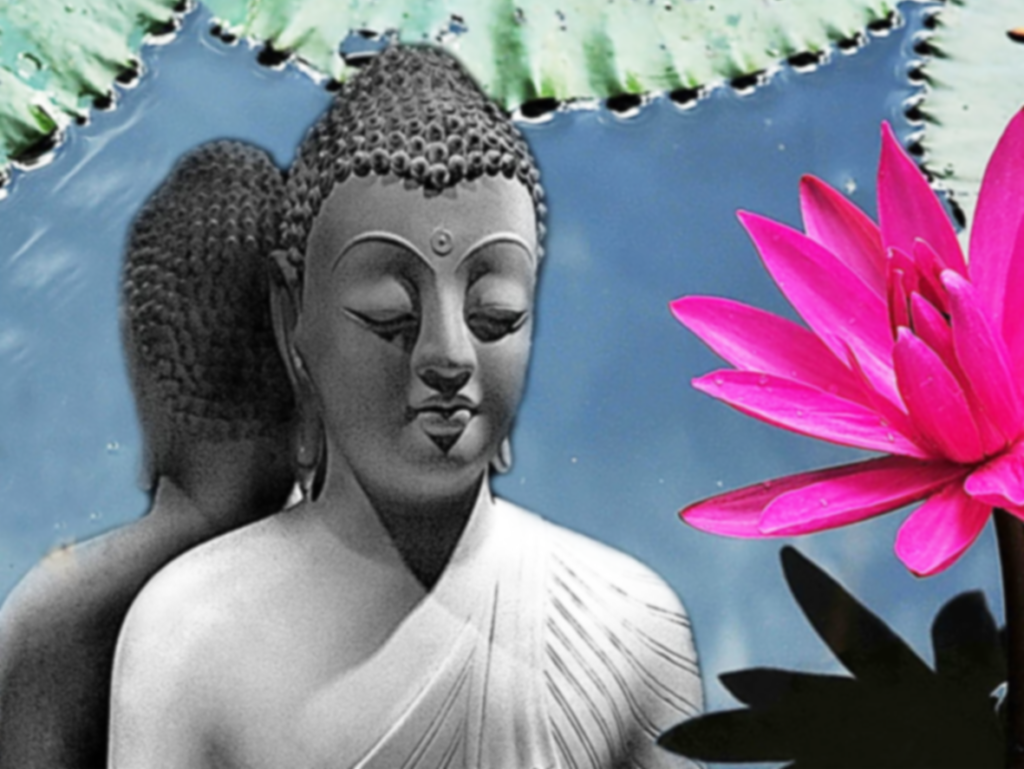The Forty-Eight Vows of Amitabha Buddha as recorded in the Larger Sutra of Immeasurable Life.

[1] If I should attain Buddhahood, yet there would be hell beings, hungry ghosts, or animals in my land, may I not attain perfect enlightenment.
[2] If I should attain Buddhahood, yet humans and heavenly beings in my land would again be in the three lower realms after the end of their lives, may I not attain perfect enlightenment.
[3] If I should attain Buddhahood, yet humans and heavenly beings in my land would not all be the color of genuine gold, may I not attain perfect enlightenment.
[4] If I should attain Buddhahood, yet humans and heavenly beings in my land would differ in appearance and vary in beauty, may I not attain perfect enlightenment.
[5] If I should attain Buddhahood, yet humans and heavenly beings in my land would not all be aware of their past lives and know events of at least the past hundreds of thousands of millions of nayutas of kalpas, may I not attain perfect enlightenment.
[6] If I should attain Buddhahood, yet humans and heavenly beings in my land would not attain heavenly vision and see at least hundreds of thousands of millions of nayutas of Buddhas’ lands, may I not attain perfect enlightenment.
[7] If I should attain Buddhahood, yet humans and heavenly beings in my land would not attain heavenly hearing and hear the teachings of at least hundreds of thousands of millions of nayutas of Buddhas, and they would not receive and uphold all of them, may I not attain perfect enlightenment.
[8] If I should attain Buddhahood, yet humans and heavenly beings in my land would not attain the wisdom of mind reading and know the minds and thoughts of sentient beings of at least hundreds of thousands of millions of nayutas of Buddhas’ lands, may I not attain perfect enlightenment.
[9] If I should attain Buddhahood, yet humans and heavenly beings in my land would not attain supernatural abilities and travel beyond at least hundreds of thousands of millions of nayutas of Buddhas’ lands within one thought, may I not attain perfect enlightenment.
[10] If I should attain Buddhahood, yet humans and heavenly beings in my land would give rise to perceptions, thoughts, or greed toward their bodies, may I not attain perfect enlightenment.
[11] If I should attain Buddhahood, yet humans and heavenly beings in my land would not abide in meditative concentration toward enlightenment and definitely attain nirvana, may I not attain perfect enlightenment.
[12] If I should attain Buddhahood, yet my light would have a limit and not illuminate at least hundreds of thousands of millions of nayutas of Buddhas’ lands, may I not attain perfect enlightenment.
[13] If I should attain Buddhahood, yet my lifespan would have a limit and not be at least hundreds of thousands of millions of nayutas of kalpas, may I not attain perfect enlightenment.
[14] If I should attain Buddhahood, yet the number of sravakas in my land could be counted, even if their number is known only after all the sentient beings of a three thousandfold world systems would become pratyekabuddhas and count together for hundreds of thousands of kalpas, may I not attain perfect enlightenment.
[15] If I should attain Buddhahood, the lifespan of humans and heavenly beings in my land would be infinite, except for those who shorten their lives at will because of their original vows. If this should not be the case, may I not attain perfect enlightenment.
[16] If I should attain Buddhahood, yet humans and heavenly beings in my land would even hear the name of any unwholesomeness, may I not attain perfect enlightenment.
[17] If I should attain Buddhahood, yet immeasurable Buddhas in the worlds of the ten directions would not all praise and proclaim my name, may I not attain perfect enlightenment.
[18] If I should attain Buddhahood, yet sentient beings of the ten directions who aspire to be reborn in my land with wholehearted faith and joy, even having just ten thoughts [of my name], would not be reborn there, may I not attain perfect enlightenment. The only exceptions are those who have committed the five great violations and those who have slandered the right Dharma.
[19] If I should attain Buddhahood, sentient beings of the ten directions would generate the bodhi mind, cultivate various virtues, and wholeheartedly vow to be reborn in my land. If at the end of their lives, I would not appear before them, surrounded by a great assembly, may I not attain perfect enlightenment.
[20] If I should attain Buddhahood, yet sentient beings who hear my name, concentrate their thoughts continuously on my land, cultivate all roots of virtue, and wholeheartedly dedicate the virtue toward their aspiration to be reborn in my land would not fulfill their wishes, may I not attain perfect enlightenment.
[21] If I should attain Buddhahood, yet humans and heavenly beings in my land would not all have fully accomplished the thirty-two marks of a great man, may I not attain perfect enlightenment.
[22] If I should attain Buddhahood, all the multitudes of bodhisattvas in lands of other directions who come to be reborn in my land would ultimately reach [the stage of] being only one rebirth away from Buddhahood. The only exceptions are bodhisattvas who have made the original vows to freely transform themselves: For the sake of sentient beings, they don the armor of the great vows, accumulate roots of virtue, and bring liberation to all; they travel through all Buddhas’ lands, cultivate the bodhisattva practices, honor all Buddhas, Tathagatas, of the ten directions with offerings, edify sentient beings as immeasurable as grains of sand in the Ganges River, and establish them in the unsurpassed, true Way; they go beyond the usual practices of the grounds of the bodhisattva path, and manifest and cultivate the virtues of Samantabhadra. If this should not be the case, may I not attain perfect enlightenment.
[23] If I should attain Buddhahood, and bodhisatt- vas in my land would honor all Buddhas with offerings through the spiritual power of the Buddha, yet they could not travel throughout immeasurable, innumerable millions of nayutas of Buddhas’ lands within the time of a meal, may I not attain perfect enlightenment.
[24] If I should attain Buddhahood, and bodhisatt- vas in my land would manifest their roots of virtue in front of all Buddhas and honor them with offerings of their choice, yet they could not fulfill their wishes, may I not attain perfect enlightenment.
[25] If I should attain Buddhahood, yet bodhisattvas in my land could not teach [the Dharma] with all wisdom, may I not attain perfect enlightenment.
[26] If I should attain Buddhahood, yet bodhisatt- vas in my land would not attain the diamond-like body of Narayana, may I not attain perfect enlightenment.
[27] If I should attain Buddhahood, humans, heavenly beings, and all myriad things in my land would be adorned and pure, brilliant and beautiful, their shapes and colors would be extraordinary, and their utterly exquisite and wonderful qualities would be unfathomable and beyond description. If sentient beings, even those who have attained heavenly vision, could clearly distinguish the names and numbers of the wonders of beings and things there, may I not attain perfect enlightenment.
[28] If I should attain Buddhahood, yet bodhisatt- vas in my land, even those with few measures of virtue, could not know and see the bodhi tree with its immeasurable light and colors, four million miles in height, may I not attain perfect enlightenment.
[29] If I should attain Buddhahood, yet bodhisattvas in my land would not attain eloquence and wisdom after having received, read, recited, upheld, and expounded on the teachings of sutras, may I not attain perfect enlightenment.
[30] If I should attain Buddhahood, yet the wisdom and eloquence of bodhisattvas in my land could have a limit, may I not attain perfect enlightenment.
[31] If I should attain Buddhahood, my land would be pure, completely reflecting all the immeasurable, innumerable, inconceivable Buddhas’ worlds of the ten directions, just like seeing the image of one’s face in a clear mirror. If this should not be the case, may I not attain perfect enlightenment.
[32] If I should attain Buddhahood, from the ground up into the sky, the palaces, towers, ponds, streams, flowers, trees, and all the myriad things in my land would all be made of an immeasurable number of various jewels and hundreds of thousands of kinds of incense. Their adornments would be marvelously exquisite, surpassing those of humans and heavenly beings. Their fragrances would permeate throughout the worlds of the ten directions, and bodhisattvas who perceive them would all cultivate the Buddha Way. If this should not be the case, may I not attain perfect enlightenment.
[33] If I should attain Buddhahood, sentient beings in immeasurable, inconceivable Buddhas’ worlds of the ten directions whose bodies are touched by my radiant light would become soft and pliant in their bodies and minds to a degree surpassing that of humans and heavenly beings. If this should not be the case, may I not attain perfect enlightenment.
[34] If I should attain Buddhahood, yet sentient beings in immeasurable, inconceivable Buddhas’ worlds of the ten directions who hear my name would not attain the bodhisattva’s patience of the non-arising of phenomena and the profound dharanis, may I not attain perfect enlightenment.
[35] If I should attain Buddhahood, and there would be women in immeasurable, inconceivable Buddhas’ worlds of the ten directions who hear my name, rejoice with faith, generate the bodhi mind, and are weary of being women, yet after the end of their lives they would again be reborn as women, may I not attain perfect enlightenment.
[36] If I should attain Buddhahood, all the multitudes of bodhisattvas in immeasurable, inconceivable Buddhas’ worlds of the ten directions who hear my name would, after the end of their lives, always live the pure life of celibacy until they attain Buddhahood. If this should not be the case, may I not attain perfect enlightenment.
[37] If I should attain Buddhahood, all humans and heavenly beings in immeasurable, inconceivable Buddhas’ worlds of the ten directions who hear my name, pay homage to me with a full prostration to the ground, and cultivate the bodhisattva practices would be revered by all heavenly beings and humans in the world without exception. If this should not be the case, may I not attain perfect enlightenment.
[38] If I should attain Buddhahood, humans and heavenly beings in my land would obtain any clothing they wish for as soon as they think it. They would naturally be clad in wonderful garments, which are in accordance with the Dharma and praised by Buddhas. If there should be any sewing, dyeing, or washing [needed], may I not attain perfect enlightenment.
[39] If I should attain Buddhahood, yet humans and heavenly beings in my land would not enjoy happiness like that of a bhiksu who has eradicated his outflows, may I not attain perfect enlightenment.
[40] If I should attain Buddhahood, whenever bodhisattvas in my land wish to see the immeasurable number of pure, adorned Buddhas’ lands of the ten directions, they would fulfill their wish right then and see all of them reflected in jeweled trees, just like seeing the image of one’s face in a clear mirror. If this should not be the case, may I not attain perfect enlightenment.
[41] If I should attain Buddhahood, yet all the multitudes of bodhisattvas in lands of other directions who hear my name would suffer any lack or imperfection in their faculties at any time before attaining Buddhahood, may I not attain perfect enlightenment.
[42] If I should attain Buddhahood, all the multitudes of bodhisattvas in lands of other directions who hear my name would fully attain the samadhi of pure liberation. They would abide in this samadhi, and as soon as they think of honoring immeasurable, inconceivable Buddhas, World-Honored Ones, with offerings, they would accomplish this within a thought without losing their state of concentration. If this should not be the case, may I not attain perfect enlightenment.
[43] If I should attain Buddhahood, all the multitudes of bodhisattvas in lands of other directions who hear my name would be reborn in noble families after the end of their lives. If this should not be the case, may I not attain perfect enlightenment.
[44] If I should attain Buddhahood, all the multitudes of bodhisattvas in lands of other directions who hear my name would be joyful and enthusiastic, cultivate the bodhisattva practices, and be replete with roots of virtue. If this should not be the case, may I not attain perfect enlightenment.
[45] If I should attain Buddhahood, all the multitudes of bodhisattvas in lands of other directions who hear my name would fully attain the samadhi of universal equality. They would abide in this samadhi until they attain Buddhahood, and they would always see all the immeasurable, inconceivable Buddhas. If this should not be the case, may I not attain perfect enlightenment.
[46] If I should attain Buddhahood, bodhisattvas in my land would naturally hear the Dharma they wish for in accordance with their aspirations and vows. If this should not be the case, may I not attain perfect enlightenment.
[47] If I should attain Buddhahood, yet all the multitudes of bodhisattvas in lands of other directions who hear my name would not instantly reach [the stage of] not regressing, may I not attain perfect enlightenment.
[48] If I should attain Buddhahood, yet all the multitudes of bodhisattvas in lands of other directions who hear my name would not instantly reach the first, second, and third [states of] Dharma patience and not instantly attain [the stage of] not regressing from the Dharma of all Buddhas, may I not attain perfect enlightenment.












